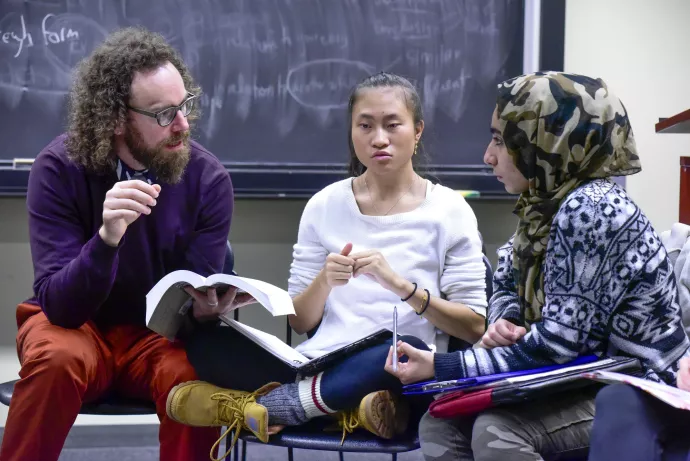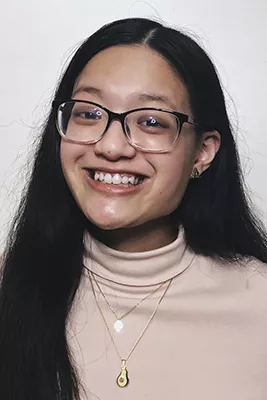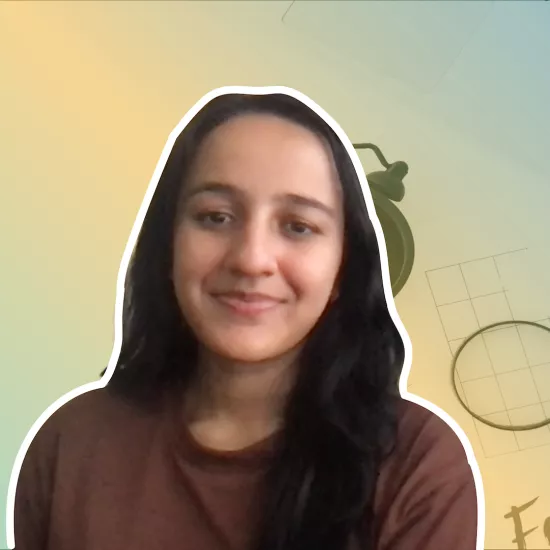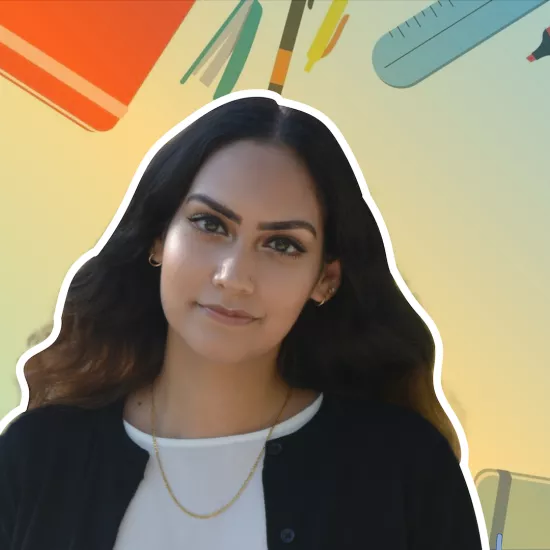How to Choose the Right Program for You

At UTM, you first apply for an admissions category (e.g., Studies in Life Sciences) and during your first year, you take courses related to it (e.g., BIO152) which prepare you for upper year courses and for your Subject Program of Study (POSt). Read on further and you’ll learn how to choose the right program for you!
Know Yourself

Double Major in Political Science and French Studies
Class of 2023
In order to succeed in university, it’s really important to know who you are, what your strengths and weaknesses are, and where your interests lie.
First things first, the best advice I give to first-year students is to take courses with material that interest you. Whether these courses are prerequisites for upper-year courses or electives, you will have a better grasp of the material if you are interested in what you’re learning. For example, if you’re someone who loves to learn languages, the UTM Language Studies department offers a whole breadth of courses to teach students languages like Mandarin, German, and Italian.
As someone who is majoring in French, I took FRE180 and FRE181 in 1st year because I wanted to continue taking French and master the language. I really enjoyed taking French courses in elementary and all throughout high school. To this day, I perform the best in my French classes.
Next, it’s important to review what your strengths are. Do you know where you excel? For example, are you someone who can read and analyze information well? If the answer is yes, you should take Biology courses or consider enrolling into any Biology program as you will find yourself reading lab reports and analyzing results. Moreover, if you have great critical thinking skills, you should definitely consider Chemistry as you will have to understand how to apply the material. Once you narrow down your strengths, you can narrow down your choice of programs.
Personally, I’m someone who enjoys reading because I’m able to process and understand the material. I also like to learn new things this way because if it doesn’t make sense, I can always re-read it. Since reading is my strong suit, I chose to major in Political Science because there is a lot of reading that we do about political philosophy, politics in Canada and around the world, etc. The readings really elevate my understanding of the material and that way, I can participate in class.
Lastly, it’s important to be aware of your weaknesses. If you’re someone who struggles with numerical analysis, then Mathematics might be a tough subject for you to tackle. However, if that’s your interest, recognize that there are several supports and resources available on campus to help you succeed. Don’t let your weaknesses hinder you from what you want to study, but ensure that you’re making use of the resources available to you.
Before I was majoring in Political Science and French, I was taking Commerce courses. One of my required courses was MAT133 and because I know it’s not my strongest subject, I worked twice as hard for this class compared to my other courses. I did all of the homework, I went to the Robert Gillespie Academic Skills Centre’s (RGASC) Facilitated Study Groups (FSG), and I visited my professors during their office hours to get extra help.
Possibility of Switching Programs
I mentioned earlier that I was in Commerce before I was taking Political Science and French courses. Before I applied to university, I knew I wanted to become a lawyer. However, no pre-law program exists at the undergraduate level. I could major in any program to prepare for graduate studies. Since I was interested in corporate law, I wanted to take courses in business to gain some foundational background. I chose to apply for Commerce at UTM and got in. I decided I was no longer interested in the material, so I switched to Political Science to learn more about politics, in general, and French because it was my interest.
At UTM, you’re able to take electives that could open you up to studying other disciplines, which is what I did throughout my undergraduate career. Remember that there is no shame in switching programs because it’s more important to be studying what you’re interested in, especially if you might have to prolong your studies. It’s your journey. No one is ahead of you or behind you.
Resources Available at University
It’s important to know who and where you can turn to for help in university. The resources that will be listed here are specific to the University of Toronto Mississauga campus.
- The Office of the Registrar has a team of academic and financial advisors available who can provide guidance on what path to take to obtain your degree as well as how to manage OSAP loans. They were especially helpful when I was deciding my Subject POSt.
- Departmental Academic Advisors can give advice on which courses to take especially ones that match your interests.
- At RGASC, you can book appointments with instructors for math, study, and writing skills. There are even drop-in hours for writing papers, and they can help with any stage of the writing process. FSGs are also organized for most first-year courses.
- The Career Centre is very helpful for mock interviews and resume critiques. They have tip sheets for careers available for each major and can provide an overview of what your undergraduate career could look like depending on your program.
At the end of the day, university is truly a place for you to discover who you are and everyone will help you figure out the best route for you.



